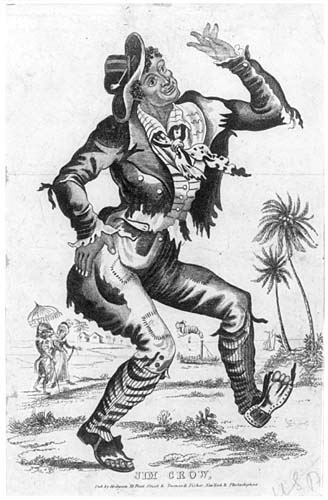Title
Happy are we Darkies so Gay
Type
Song
Description
[Alternately: “Happy Are We Niggars [Niggers] So Gay,” “Happy Are We Us Niggers So Gay”]
To listen to this song (and others) on the Artists Respond to Juba Site, Click Here.
As multiple published editions of the song state that the air was adapted from the opera “La Bayidere [Bayadère],” it seems likely that the source material is the opéra-ballet Le Dieu et la Bayadère, ou La Courtisane amoureuse (1830) with music by Daniel Auber (1782-1871). Given that Mahar suggests 1844 was the original year of publication for “Happy Are We Darkies So Gay,” it appears highly improbable that the source material would be the more widely known ballet, La Bayadère (The Temple Dancer) (1847), with music by Ludwig Minkus (1826-1917). Lyrics unknown. This song is of particular interest precisely because of what appears to be an explicitly advertised association with an opera source text. While many songs from this canon are adapted from classical works, this is one of the few instances where the minstrel song was consistently advertised in its published form as an adaptation. Upon inspection of the lyrical setting, it is obvious that they strengthen this association. One of the few songs from this canon to contain what can arguably be described as a pre-chorus, the setting specifies that this portion of the song be performed by at least two voices. Together with the constant use of the collective pronoun and the consistent description of minstrel activity, the song bears the markings of an opera chorus.
It appears that the song was not popular in minstrel shows during the period in question. Indeed, Mahar suggests that event though the song was published a number of times, confirmed performances are minimal (39). This fact is supported by the complete lack of performance listings in this database. It appears likely, then, that this song may represent one of the first attempts in this canon to sell a song exclusively through association with a non-minstrel source text. At the time of this writing, however, no recorded versions have been located. Interestingly, though, the melody for this song seems to have been adapted into the “Queensland Explorers Song,” originally published in The Queenslanders New Colonial Campfire Songbook (1865). It is uncertain as to whether or not the melody was adapted from the present song or directly from La Bayadère itself.
Works Cited:Mahar, William J. Behind the Burnt Cork Mask: Early Blackface Minstrelsy and Antebellum American Popular Culture. Chicago: Illinois UP, 1999.
To listen to this song (and others) on the Artists Respond to Juba Site, Click Here.
As multiple published editions of the song state that the air was adapted from the opera “La Bayidere [Bayadère],” it seems likely that the source material is the opéra-ballet Le Dieu et la Bayadère, ou La Courtisane amoureuse (1830) with music by Daniel Auber (1782-1871). Given that Mahar suggests 1844 was the original year of publication for “Happy Are We Darkies So Gay,” it appears highly improbable that the source material would be the more widely known ballet, La Bayadère (The Temple Dancer) (1847), with music by Ludwig Minkus (1826-1917). Lyrics unknown. This song is of particular interest precisely because of what appears to be an explicitly advertised association with an opera source text. While many songs from this canon are adapted from classical works, this is one of the few instances where the minstrel song was consistently advertised in its published form as an adaptation. Upon inspection of the lyrical setting, it is obvious that they strengthen this association. One of the few songs from this canon to contain what can arguably be described as a pre-chorus, the setting specifies that this portion of the song be performed by at least two voices. Together with the constant use of the collective pronoun and the consistent description of minstrel activity, the song bears the markings of an opera chorus.
It appears that the song was not popular in minstrel shows during the period in question. Indeed, Mahar suggests that event though the song was published a number of times, confirmed performances are minimal (39). This fact is supported by the complete lack of performance listings in this database. It appears likely, then, that this song may represent one of the first attempts in this canon to sell a song exclusively through association with a non-minstrel source text. At the time of this writing, however, no recorded versions have been located. Interestingly, though, the melody for this song seems to have been adapted into the “Queensland Explorers Song,” originally published in The Queenslanders New Colonial Campfire Songbook (1865). It is uncertain as to whether or not the melody was adapted from the present song or directly from La Bayadère itself.
Works Cited:
Mark Turner
Performance(s) listed of this act
| Performer(s) | Troupe | Event and Venue |
|---|---|---|
| , - , |

